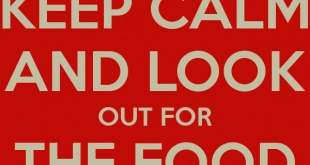I won’t go into my personal history with the scale. Mostly because it’d
be a whole blog post (or series of) by itself. What I will say is that this one
inanimate object (it really is inanimate people!) seems to wield a lot of power
over us – how we think, how we feel about ourselves and, sometimes, what we do
or do not eat.
be a whole blog post (or series of) by itself. What I will say is that this one
inanimate object (it really is inanimate people!) seems to wield a lot of power
over us – how we think, how we feel about ourselves and, sometimes, what we do
or do not eat.
So I thought I’d go over a few “scale mistakes” if you will.
Things people do that actually help
the scale to drive them crazy. I purposely refrained from putting “weighing
every day” on the list. I’ve heard from many of you that you feel you need to
weigh every day for accountability and if you are using it to do that, I can’t
really argue with that (although I personally don’t do it). But here are a few other scale mistakes I see people make
all the time!
Things people do that actually help
the scale to drive them crazy. I purposely refrained from putting “weighing
every day” on the list. I’ve heard from many of you that you feel you need to
weigh every day for accountability and if you are using it to do that, I can’t
really argue with that (although I personally don’t do it). But here are a few other scale mistakes I see people make
all the time!
You weigh at
different times of the day.
different times of the day.
In a life existence where two pounds lost or gained can be
the difference between elation and utter discontent, it confounds me that
people weigh at various points of different days.
the difference between elation and utter discontent, it confounds me that
people weigh at various points of different days.
There are several reasons why our weight fluctuates
throughout the day and they can basically be boiled down to this: you “take in”
matter during the day. Matter has weight. That weight will show up on the scale.
throughout the day and they can basically be boiled down to this: you “take in”
matter during the day. Matter has weight. That weight will show up on the scale.
If you drink 16 oz. of water right before stepping on the
scale, you’re adding a full pound onto your body weight (provided you didn’t
use the bathroom before weighing). Each meal you eat adds weight, not
necessarily as weight gained but matter that is sitting in your digestive
system. And, of course, poop has weight too.
scale, you’re adding a full pound onto your body weight (provided you didn’t
use the bathroom before weighing). Each meal you eat adds weight, not
necessarily as weight gained but matter that is sitting in your digestive
system. And, of course, poop has weight too.
Bottom line: Try to weigh around the same time every day if
you MUST weigh every day. That will give you a more accurate idea of how you
are progressing.
you MUST weigh every day. That will give you a more accurate idea of how you
are progressing.
You weigh several times a day.
Yes, you may
see incremental changes but there is no good reason you need to weigh yourself
multiple times a day. As I said in the above point, you are more likely to
weigh more as the day progresses than less (there are, of course, exceptions to
that rule), so unless you like feeling bad about yourself, pick a time, adhere
to it and do it once!
see incremental changes but there is no good reason you need to weigh yourself
multiple times a day. As I said in the above point, you are more likely to
weigh more as the day progresses than less (there are, of course, exceptions to
that rule), so unless you like feeling bad about yourself, pick a time, adhere
to it and do it once!
Bottom line: Weighing several times a day can be symptomatic
of a thinking process that isn’t entirely balanced and healthy. Only you know
whether that’s the case for you. If it is, know this: unhealthy thinking (most
times) breeds unhealthy behavior. When we work toward a healthy mindset,
healthy habits and healthy results are more likely to follow.
of a thinking process that isn’t entirely balanced and healthy. Only you know
whether that’s the case for you. If it is, know this: unhealthy thinking (most
times) breeds unhealthy behavior. When we work toward a healthy mindset,
healthy habits and healthy results are more likely to follow.
You weigh after
exercising.
exercising.
My trainer was the first person to let me know what a bad
idea that is (unless, in my opinion, you consistently do it at that time so you
can see the overall change and not just the change from before you work out). Especially when strength training, you are
tearing muscle and exerting yourself. The body uses many things, including
water, to recover from those activities. I’ve had more people than I can count
email me distraught because they “gained weight” from exercise.
idea that is (unless, in my opinion, you consistently do it at that time so you
can see the overall change and not just the change from before you work out). Especially when strength training, you are
tearing muscle and exerting yourself. The body uses many things, including
water, to recover from those activities. I’ve had more people than I can count
email me distraught because they “gained weight” from exercise.
A small uptick in weight after starting or bumping up an
exercise regimen can be normal. NOTE: Excessive gain is NOT. Yes muscle is more
dense than fat (it does not weigh more than fat but it is denser) but even that
isn’t going to cause a significant weight gain. More than a few pounds that
stick around more than a few days and I’d say you may need to look at what you’re
doing and adjust (I am, of course, not a nutritionist or a fitness
professional, however, so your first step might be to seek out one of the two.)
exercise regimen can be normal. NOTE: Excessive gain is NOT. Yes muscle is more
dense than fat (it does not weigh more than fat but it is denser) but even that
isn’t going to cause a significant weight gain. More than a few pounds that
stick around more than a few days and I’d say you may need to look at what you’re
doing and adjust (I am, of course, not a nutritionist or a fitness
professional, however, so your first step might be to seek out one of the two.)
Bottom line: Exercise can cause weight fluctuations and we
should not expect to see instantaneous results on the scale from exercising. So
afterward is probably not the best time to weigh, especially if you are
weighing several times a day!
should not expect to see instantaneous results on the scale from exercising. So
afterward is probably not the best time to weigh, especially if you are
weighing several times a day!
You allow the scale
to dictate your actions.
to dictate your actions.
Sigh. I used to be guilty of this one myself. If my weight
didn’t come in where I wanted it to be, I skipped a meal. Or I exercised long
and hard without properly fueling my body (and more than once hurt myself!). I’ve
heard of people doing the opposite: being distressed by what the scale says and
going on to make unhealthy eating choices or throwing their hands up and
saying, “why bother!” with regards to exercise.
didn’t come in where I wanted it to be, I skipped a meal. Or I exercised long
and hard without properly fueling my body (and more than once hurt myself!). I’ve
heard of people doing the opposite: being distressed by what the scale says and
going on to make unhealthy eating choices or throwing their hands up and
saying, “why bother!” with regards to exercise.
Bottom line: Weight loss is a tricky process. It’s not ever something
the human body wants to do nor is it what the human body is built to do. Thus, you are going to face
challenges. There will be stalls. Long ones. There will be points where you
have to push harder, longer and almost reach your breaking point before you see
a downward trend on the scale. But take heart. Your body is changing. It’s even
possible for your body to be shrinking even if the number on the scale isn’t!
But being reactive isn’t going to help. In my nearly 6 years as a post-op I can
say I have never, EVER seen that mentality end well.
the human body wants to do nor is it what the human body is built to do. Thus, you are going to face
challenges. There will be stalls. Long ones. There will be points where you
have to push harder, longer and almost reach your breaking point before you see
a downward trend on the scale. But take heart. Your body is changing. It’s even
possible for your body to be shrinking even if the number on the scale isn’t!
But being reactive isn’t going to help. In my nearly 6 years as a post-op I can
say I have never, EVER seen that mentality end well.
You avoid the scale
altogether.
altogether.
Yep. I just extolled the possible dangers of weighing too
much and here I am talking about weighing too infrequently. But that’s also
dangerous. Many times we know when we’re not doing right. And sometimes we
avoid the scale because it will confirm what we already know to be true. Maybe
you’ve lost control. Maybe it’s been a stressful few weeks. Maybe, maybe,
maybe.
much and here I am talking about weighing too infrequently. But that’s also
dangerous. Many times we know when we’re not doing right. And sometimes we
avoid the scale because it will confirm what we already know to be true. Maybe
you’ve lost control. Maybe it’s been a stressful few weeks. Maybe, maybe,
maybe.
Bottom line: Well guess what? An important
part of living a healthier life is taking responsibility for your actions and
deciding what to do next. So you ate two slices of cake over the weekend. So
make a plan to work it off! But the only thing avoiding the scale does is fuels
your perception of your weight. And
that’s where the danger comes in. Having interacted with thousands of post-ops
through our blog I can say that we nearly always perceive our weight as higher
than it actually is. So if you are going off a higher perceived weight, you are
more likely to be depressed about your weight, more likely to react in depression to that weight, more
likely to stress about it (and produce cortisol which actually, physically does
aid weight gain) and you’re more likely to fall back on unhealthy coping
mechanisms.
Instead, get the facts. The data may be painful to look at but at least it’s
objective and you can work from reality and NOT perception.
So there you have it. I invite debate about these points.
There are probably even more but I highlighted the top five that I see.
There are probably even more but I highlighted the top five that I see.
The bottom line to this whole post is that, like our
surgeries, the scale is a tool to help you get where you want to go. It, in and
of itself, does not narrate your success story. Stop giving an inanimate object
so much power in your lives!
surgeries, the scale is a tool to help you get where you want to go. It, in and
of itself, does not narrate your success story. Stop giving an inanimate object
so much power in your lives!
 Bariatric Foodie Play with your food
Bariatric Foodie Play with your food


